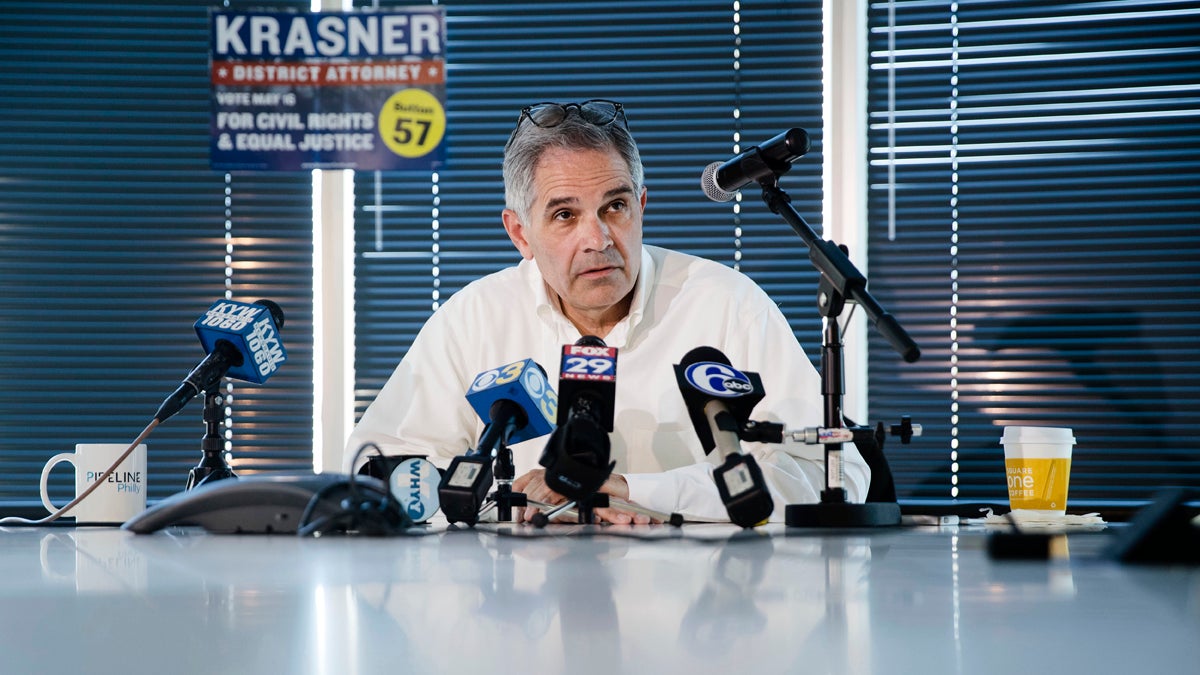The slowly shifting status of capital punishment in Pennsylvania

Larry Krasner, the Democratic nominee for Philadelphia district attorney, speaks during a news conference in Philadelphia Wednesday. Krasner, a civil rights lawyer who has defended Black Lives Matter and Occupy Philadelphia protesters, vows to oppose the death penalty and mass incarceration. (AP Photo/Matt Rourke)
Civil rights lawyer Larry Krasner’s win in the Democratic primary for Philadelphia district attorney put him on track for a probable victory in November.
Krasner has made a name for himself as a longtime defense lawyer in civil rights cases, but he is perhaps best-known for his ardent opposition to the death penalty. His election dredged up a recurring discussion Pennsylvania has been grappling with for decades: What does the future of capital punishment in the commonwealth look like?
Pennsylvania is one of only two states in the Northeast that still allows the death penalty. It has the fifth most inmates on death row in the nation; in the last 40 years, however, it has executed only three people.
Why the disparity?
Marc Bookman with the Atlantic Center for Capital Representation — which offers legal training and consulting for capital punishment cases — said death penalty cases in Pennsylvania are often faulty.
“We haven’t properly funded the defense, we haven’t made sure the prosecutors were trained, that the defense attorneys were trained,” Bookman said. “So we’ve had any number of death sentences, and then virtually all of them have been reversed by the courts.”
Bookman’s organization opposes the capital punishment — mainly on the grounds the trials are a waste of time and resources.
“At this point, it’s nothing more than symbolism,” he said. “What you have is kind of a conveyor belt of convictions and reversals. And a situation like that is terribly unfair, it costs an incredible amount of money … you know the death penalty has essentially become a black hole.”
In 2015, Gov. Tom Wolf issued a moratorium on the death penalty. Several studies on it are currently in the works.
WHYY is your source for fact-based, in-depth journalism and information. As a nonprofit organization, we rely on financial support from readers like you. Please give today.


